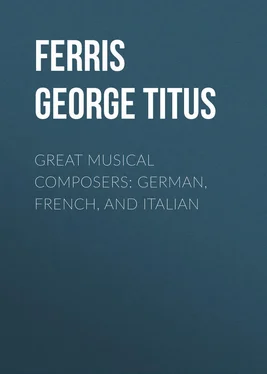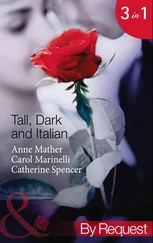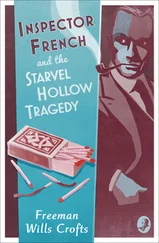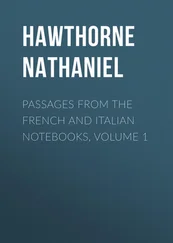George Ferris - Great Musical Composers - German, French, and Italian
Здесь есть возможность читать онлайн «George Ferris - Great Musical Composers - German, French, and Italian» — ознакомительный отрывок электронной книги совершенно бесплатно, а после прочтения отрывка купить полную версию. В некоторых случаях можно слушать аудио, скачать через торрент в формате fb2 и присутствует краткое содержание. Жанр: music_dancing, foreign_antique, foreign_prose, на английском языке. Описание произведения, (предисловие) а так же отзывы посетителей доступны на портале библиотеки ЛибКат.
- Название:Great Musical Composers: German, French, and Italian
- Автор:
- Жанр:
- Год:неизвестен
- ISBN:нет данных
- Рейтинг книги:3 / 5. Голосов: 1
-
Избранное:Добавить в избранное
- Отзывы:
-
Ваша оценка:
- 60
- 1
- 2
- 3
- 4
- 5
Great Musical Composers: German, French, and Italian: краткое содержание, описание и аннотация
Предлагаем к чтению аннотацию, описание, краткое содержание или предисловие (зависит от того, что написал сам автор книги «Great Musical Composers: German, French, and Italian»). Если вы не нашли необходимую информацию о книге — напишите в комментариях, мы постараемся отыскать её.
Great Musical Composers: German, French, and Italian — читать онлайн ознакомительный отрывок
Ниже представлен текст книги, разбитый по страницам. Система сохранения места последней прочитанной страницы, позволяет с удобством читать онлайн бесплатно книгу «Great Musical Composers: German, French, and Italian», без необходимости каждый раз заново искать на чём Вы остановились. Поставьте закладку, и сможете в любой момент перейти на страницу, на которой закончили чтение.
Интервал:
Закладка:
Shortly before Bach’s death, he was seized with blindness, brought on by incessant labour; and his end was supposed to have been hastened by the severe inflammation consequent on two operations performed by an English oculist. He departed this life July 30, 1750, and was buried in St. John’s churchyard, universally mourned by musical Germany, though his real title to exceptional greatness was not to be read until the next generation.
III
Sebastian Bach was not only the descendant of a widely-known musical family, but was himself the direct ancestor of about sixty of the best-known organists and church composers of Germany. As a master of organ-playing, tradition tells us that no one has been his equal, with the possible exception of Handel. He was also an able performer on various stringed instruments, and his preference for the clavichord 2 2 An old instrument, which may be called the nearest prototype of the modern square piano.
led him to write a method for that instrument, which has been the basis of all succeeding methods for the piano. Bach’s teachings and influence may be said to have educated a large number of excellent composers and organ and piano players, among whom were Emanuel Bach, Cramer, Hummel, and Clementi; and on his school of theory and practice the best results in music have been built.
That Bach’s glory as a composer should be largely posthumous is probably the result of his exceeding simplicity and diffidence, for he always shrank from popular applause; therefore we may believe his compositions were not placed in the proper light during his life. It was through Mozart, Haydn, and Beethoven, that the musical world learned what a master-spirit had wrought in the person of John Sebastian Bach. The first time Mozart heard one of Bach’s hymns, he said, “Thank God! I learn something absolutely new.”
Bach’s great compositions include his “Preludes and Fugues” for the organ, works so difficult and elaborate as perhaps to be above the average comprehension, but sources of delight and instruction to all musicians; the “Matthäus Passion,” for two choruses and two orchestras, one of the masterpieces in music, which was not produced till a century after it was written; the “Oratorio of the Nativity of Jesus Christ;” and a very large number of masses, anthems, cantatas, chorals, hymns, etc. These works, from their largeness and dignity of form, as also from their depth of musical science, have been to all succeeding composers an art-armoury, whence they have derived and furbished their brightest weapons. In the study of Bach’s works the student finds the deepest and highest reaches in the science of music; for his mind seems to have grasped all its resources, and to have embodied them with austere purity and precision of form. As Spenser is called the poet for poets, and Laplace the mathematician for mathematicians, so Bach is the musician for musicians. While Handel may be considered a purely independent and parallel growth, it is not too much to assert that without Sebastian Bach and his matchless studies for the piano, organ, and orchestra, we could not have had the varied musical development in sonata and symphony from such masters as Haydn, Mozart, and Beethoven. Three of Sebastian Bach’s sons became distinguished musicians, and to Emanuel we owe the artistic development of the sonata, which in its turn became the foundation of the symphony.
HANDEL
I
To the modern Englishman Handel is almost a contemporary. Paintings and busts of this great minstrel are scattered everywhere throughout the land. He lies in Westminster Abbey among the great poets, warriors, and statesmen, a giant memory in his noble art. A few hours after death the sculptor Roubiliac took a cast of his face, which he wrought into imperishable marble; “moulded in colossal calm,” he towers above his tomb, and accepts the homage of the world benignly like a god. Exeter Hall and the Foundling Hospital in London are also adorned with marble statues of him.
There are more than fifty known pictures of Handel, some of them by distinguished artists. In the best of these pictures Handel is seated in the gay costume of the period, with sword, shot-silk breeches, and coat embroidered with gold. The face is noble in its repose. Benevolence is seated about the finely-shaped mouth, and the face wears the mellow dignity of years, without weakness or austerity. There are few collectors of prints in England and America who have not a woodcut or a lithograph of him. His face and his music are alike familiar to the English-speaking world.
Handel came to England in the year 1710, at the age of twenty-five. Four years before he had met, at Naples, Scarlatti, Porpora, and Corelli. That year had been the turning-point in his life. With one stride he reached the front rank, and felt that no musician alive could teach him anything.
George Frederick Handel (or Händel, as the name is written in German) was born at Halle, Lower Saxony, in the year 1685. Like German literature, German music is a comparatively recent growth. What little feeling existed for the musical art employed itself in cultivating the alien flowers of Italian song. Even eighty years after this Mozart and Haydn were treated like lackeys and vagabonds, just as great actors were treated in England at the same period. Handel’s father looked on music as an occupation having very little dignity.
Determined that his young son should become a doctor like himself, and leave the divine art to Italian fiddlers and French buffoons, he did not allow him to go to a public school even, for fear he should learn the gamut. But the boy Handel, passionately fond of sweet sounds, had, with the connivance of his nurse, hidden in the garret a poor spinet, and in stolen hours taught himself how to play. At last the senior Handel had a visit to make to another son in the service of the Duke of Saxe-Weissenfels, and the young George was taken along to the ducal palace. The boy strayed into the chapel, and was irresistibly drawn to the organ. His stolen performance was made known to his father and the duke, and the former was very much enraged at such a direct evidence of disobedience. The duke, however, being astonished at the performance of the youthful genius, interceded for him, and recommended that his taste should be encouraged and cultivated instead of repressed.
From this time forward fortune showered upon him a combination of conditions highly favourable to rapid development. Severe training, ardent friendship, the society of the first composers, and incessant practice were vouchsafed him. As the pupil of the great organist Zachau, he studied the whole existing mass of German and Italian music, and soon exacted from his master the admission that he had nothing more to teach him. Thence he went to Berlin to study the opera-school, where Ariosti and Bononcini were favourite composers. The first was friendly, but the latter, who with a first-rate head had a cankered heart, determined to take the conceit out of the Saxon boy. He challenged him to play at sight an elaborate piece. Handel played it with perfect precision, and thenceforward Bononcini, though he hated the youth as a rival, treated him as an equal.
On the death of his father Handel secured an engagement at the Hamburg opera-house, where he soon made his mark by the ability with which, on several occasions, he conducted rehearsals.
At the age of nineteen Handel received the offer of the Lübeck organ, on condition that he would marry the daughter of the retiring organist. He went down with his friend Mattheson, who it seems had been offered the same terms. They both returned, however, in single blessedness to Hamburg.
Though the Lübeck maiden had stirred no bad blood between them, musical rivalry did. A dispute in the theatre resulted in a duel. The only thing that saved Handel’s life was a great brass button that shivered his antagonist’s point, when they were parted to become firm friends again.
Читать дальшеИнтервал:
Закладка:
Похожие книги на «Great Musical Composers: German, French, and Italian»
Представляем Вашему вниманию похожие книги на «Great Musical Composers: German, French, and Italian» списком для выбора. Мы отобрали схожую по названию и смыслу литературу в надежде предоставить читателям больше вариантов отыскать новые, интересные, ещё непрочитанные произведения.
Обсуждение, отзывы о книге «Great Musical Composers: German, French, and Italian» и просто собственные мнения читателей. Оставьте ваши комментарии, напишите, что Вы думаете о произведении, его смысле или главных героях. Укажите что конкретно понравилось, а что нет, и почему Вы так считаете.












